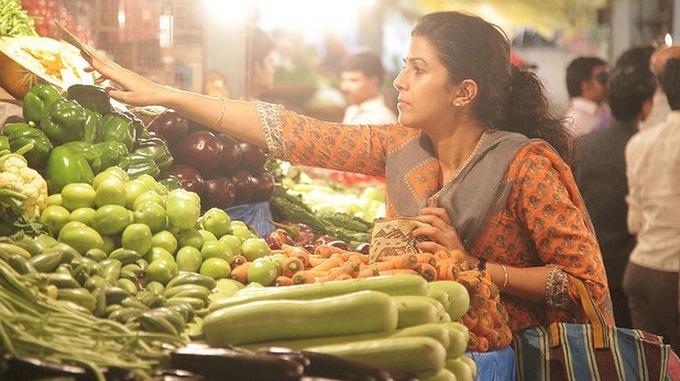First published in Daily Life, August 20, 2014
Even the best indie love stories show an inversely proportional relationship between the scale of their ambition and the narrowness of their worldview.
Before Sunrise, the first installment of Richard Linklater’s much-loved Before trilogy, might feature the kind of concentric all-night conversations that could have been lifted from the journal of an earnest twenty-something but its premise – two lovers escaping from their lives against a twinkling Vienna backdrop – hints at a depressingly limited understanding of what it means to be young and free.
Eternal Sunshine of the Spotless Mind has scenes that are harrowing enough to work as filmic shock therapy for anyone going through a breakup, but its characters Joel and Clementine – one unbearably neurotic, the other a blue-haired bookstore employee – are a study in manufactured quirk.
And in the less convincing 500 Days of Summer, being jilted might see Joseph Gordon-Levitt’s Tom leapfrog towards his dreams of becoming an architect but the winsome Summer’s indifference to anything beyond The Smiths could convince the most optimistic viewer to put stock in her textbook-perfect vintage wardrobe and abandon hopes that a female protagonist may have any kind of inner life.
Michael Newman believes that we’re victims of this very optimism. In an interview with Columbia University Press, the author of Indie suggests that this type of film exists as a sign of an elite taste culture that marks the viewer out as a cultural connoisseur rather than a reflection of an emotional universe glossed over by sugary rom-coms.
“Many of the films we would call indie are not really far from Hollywood; they’re marketed by Fox Searchlight and similar companies, which are subsidiaries of major conglomerates. I argue that calling these films indie rather than independent is a mystification. It takes attention away from economics and industry and refocuses it on sensibility, hipness, cool,” he says.
It’s safe to say that The Lunchbox, a quiet love story set in modern-day Mumbai, won’t grapple with this problem or benefit from its inevitable cachet – despite being distributed by Sony Classics and celebrated everywhere from Cannes to Telluride.
Although the film – which uses a glitch in the city’s 120-year-old lunchbox delivery system to explore a love affair between Saajan, an aging widower on the brink of retirement and Ila, a middle-class Hindu housewife saddled with a cheating husband – is described as “poignant” by The New York Times, critics have been too busy marvelling at how a country consumed with all-dancing-all-singing Bollywood could produce something subtle to bother with analysing the real reason we watch indie romance: to work out what it can teach us about ourselves.
In her brilliant New Yorker essay ‘The Scourge of Relatability’, Rebecca Mead has an explanation for why characters that aren’t “relatable” – whether or not that’s because conceiving that brown-skinned characters could share an emotional trajectory with white audiences requires a quantum leap in logic – are unreliable narrators of universal truth.
“If the concept of identification suggested that an individual experiences a work as a mirror in which he might recognise himself, the notion of relatability implies that the work serves as a selfie: a flattering confirmation of the individual’s solipsism,” she writes.
But the dangers of gravitating towards films that double as vanity projects run deeper than we think. For instance, the indie love story – a genre populated by a boring parade of self-involved white writers and faux-bohemian settings that speak to audience aspirations – relatability is often falsely conflated with progressiveness. This also means that viewers enamoured with seeing themselves on-screen tend to overlook gaping flaws. As Mead points out, Richard Linklater’s Boyhood is being hailed as a masterpiece not because of its mundane plot or cutting-edge characterisation but because the life it depicts so closely matches ours.
Unless you happen to live in India, The Lunchbox accomplishes none of these things. Instead, the notes Ila slips into Saajan’s lunchbox – which he pores over in an office that’s dustily exempt from technology – prove the ways in which sharing fears and anxieties with someone can set the stage for true intimacy.
The scenes of Mumbai are less interested in technicolour weddings than they are with crumbling apartments and the way it feels to stand alone in a packed commuter train. It captures the rhythms a of a single city while maintaining that finding an emotional connection when you’re surrounded by strangers is remarkable anywhere. And Ila’s decision to leave her joyless marriage is the mark of a film that doesn’t treat her as a cipher or a way to advance the plot. She might exist in a world where you wash laundry by hand and making an aromatic lunch is a form of self-expression but that doesn’t make her choices less feminist.
In an interview with The Hollywood Reporter, The Lunchbox’s director Ritesh Batra – who splits his time between Mumbai and New York and, like Linklater, dropped out of film school – says he’s determined to tell more stories with universal appeal. Let’s hope that by then our definition of “relatability” extends beyond characters that make us feel like we’re catching our reflection in a mirror to those who – despite surface differences – have inner worlds that resonate with our own.
